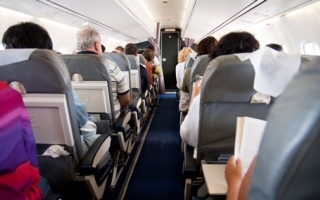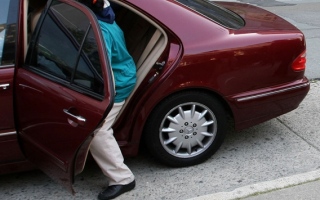- City Fajr Shuruq Duhr Asr Magrib Isha
- Dubai 04:26 05:44 12:20 15:47 18:50 20:08
The UAE continues to be regarded as a model nation by Arab youths.
Asked to name the country, anywhere in the world, where they would most like to live, Arab youth, as they did in 2012, cite the UAE as their preference.
The UAE emerged as the top choice of 31 per cent of Arab youth across the 15 countries surveyed, followed by France (18 per cent), the United States and Turkey (16 per cent each), according to the findings of the fifth annual Arab Youth Survey.
When asked which country in the world they would most like their country to be like, the UAE again retains its first-place ranking, with nearly a third of all youth (30 per cent) voting for that country.
A fifth of Arab youth would also prefer their country to follow the UAE’s model of development; the country ranks first ahead of France, the United States and China (each country the preference of 11 per cent of respondents), Turkey (9 per cent) and Germany (7 per cent).
France is the country outside Mena regarded most favourably by Arab youth, followed by Germany and China. But out of France, Germany, China, the UK, the United States and India, only India has experienced an increase in favourability since the last Arab Youth Survey in 2012; 29 per cent of youth describe their perception of the country as ‘very favourable’, up from 28 per cent last year.
Representing a significant shift in media consumption patterns, television is now the primary source of news for 72 per cent of regional youth (up from 62 per cent in 2012), while 59 per cent of all Arab youth rely on online news sources, an 8 per cent increase from 2012.
Newspaper readership among Arab youth continues to plummet, from 62 per cent in 2011, to 32 per cent in 2012 and 24 per cent this year. Magazines have experienced a slight gain from last year, but only 8 per cent of Arab youth say they get their news from magazines. By comparison, social media is cited as the primary source of news of 28 per cent of all Arab youth, up from 20 per cent last year.
Representing a resounding vote of confidence in the Middle East and North Africa’s future outlook, three-quarters of Arab youth, the region’s largest demographic, say their best days are ahead of them. An overwhelming 74 per cent of all Arab youth surveyed in 15 countries across Mena agree with the statement: ‘Our best days are ahead of us’.
The survey undertook 3,000 face-to-face interviews with exclusively Arab national men and women aged 18-24 in the six Gulf Cooperation Council countries (UAE, Saudi Arabia, Qatar, Kuwait, Oman and Bahrain), Iraq, Egypt, Jordan, Lebanon, Libya, Tunisia, and in three new countries added this year: Morocco, Algeria and Yemen. The survey was conducted between December 2012 and January 2013.
In each of the 15 countries surveyed, a clear majority are optimistic about the future, with a nearly equal percentage of youth in the Gulf and non-Gulf states (76 and 72 per cent, respectively) saying ‘our best days are ahead of us’.
Likewise, more than half (58 per cent) believe their country is "heading in the right direction" considering the last 12 months, while 55 per cent say their national economy is also heading in the right direction.
In the wake of the Arab Spring, regional youth are prouder than ever of their national identity – and they increasingly embrace modern values and beliefs.
Nearly nine out of 10 young Arabs (87 per cent) feel “more proud to be an Arab” following the uprisings, and 59 per cent believe recent changes in their country will have a positive impact on them and their family.
Two-thirds (67 per cent) feel “better off” following the events of the Arab Spring and 45 per cent believe their national government has become more transparent.
Two years on from the start of the Arab Spring, the overall percentage of young people updating themselves on news and current affairs daily appears to have fallen, from its 2012 peak of 52 per cent to 46 per cent this year.
Television continues to be the most-trusted news source, cited by 40 per cent of respondents, but trust in TV has dropped, from 49 per cent in 2012 and 60 per cent in 2011. Likewise, newspapers are haemorrhaging trust, with only 9 per cent of respondents to this year’s Arab Youth Survey citing print dailies as their most-trusted source of news. Meanwhile, the percentage of Arab youth who say they consider social media to be their “most-trusted source of news” has nearly tripled from 2012 to 22 per cent.
The annual survey is an initiative of PR consultancy Asda’a Burson-Marsteller. Joseph Ghossoub, Chairman and CEO of the MenaCom Group, the regional parent company of Asda’a Burson-Marsteller, said: “The fifth Asda’a Burson-Marsteller Arab Youth Survey illustrates that despite the negative media headlines attributed to the region, Arab youth retain a strong sense of hope for the future and are determined to achieve a better life for themselves and their families. However, the issues identified by the Arab Youth Survey are persistent and deep-rooted and require the ongoing attention of decision makers across the Mena region.”
Jeremy Galbraith, CEO, Burson-Marsteller, Europe, Middle East and Africa, said: “Arab youth continue to fascinate and confound international observers and their unwavering optimism is an example to their peers around the world. From their attitudes towards their region and countries beyond it, Arab youth are clearly displaying an increased confidence in their own ability to shape their collective future – a development which poses significant challenges and opportunities to the region’s leadership.”
Sunil John, Chief Executive Officer of Asda’a Burson-Marsteller, added: “Every year Asda’a Burson-Marsteller conducts the Arab Youth Survey because we understand the importance of providing reliable data here in the Middle East, where research into public opinion is often limited. This substantial investment in thought leadership demonstrates our firm belief in the principle of evidence-based communications.
“We hope the findings of the latest Arab Youth Survey will contribute to further constructive dialogue on realising the hopes and aspirations of young people across the Arab World.”
For the second consecutive year, ‘being paid a fair wage’ is the highest priority of Middle East youth, cited by 82 per cent of all those surveyed. The importance of fair pay is followed by home ownership, with 66 per cent of Arab youth describing ‘owning their own home’ as ‘very important’. Tellingly, nearly a fifth (15 per cent) of young Arabs believes they will never be able to afford their own home.
Rising living costs remain the number one concern of Arab youth, also for the second straight year in the annual study, with 62 per cent saying they are ‘very concerned’ about the issue. According to the latest findings, the rising cost of living is a bigger worry than ‘the economy’, ‘the threat of terrorism’, ‘events of the Arab Spring’ and ‘unemployment’.
‘Civil unrest’ and ‘lack of democracy’ are identified as the main obstacles in the way of the Mena region’s development, while ‘lack of Arab unity’, the ‘Palestinian-Israeli conflict’ and ‘lack of political direction’ are other barriers. GCC and non-GCC youth are equally concerned about civil unrest, with 44 per cent in both sets of countries highlighting the issue as the Arab World’s biggest obstacle.
ALSO READ:
Passenger charged for groping flight attendant

Illegal car lift: Dh5,000 fine; Dh10,000 if caught second time

Five things you should never do at your UAE workplace
![]() Follow Emirates 24|7 on Google News.
Follow Emirates 24|7 on Google News.